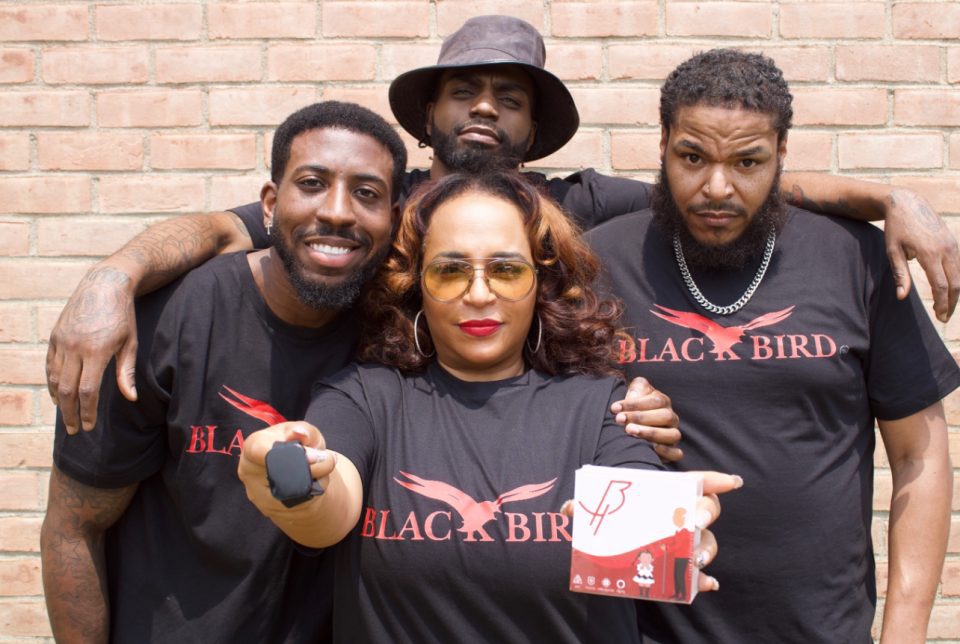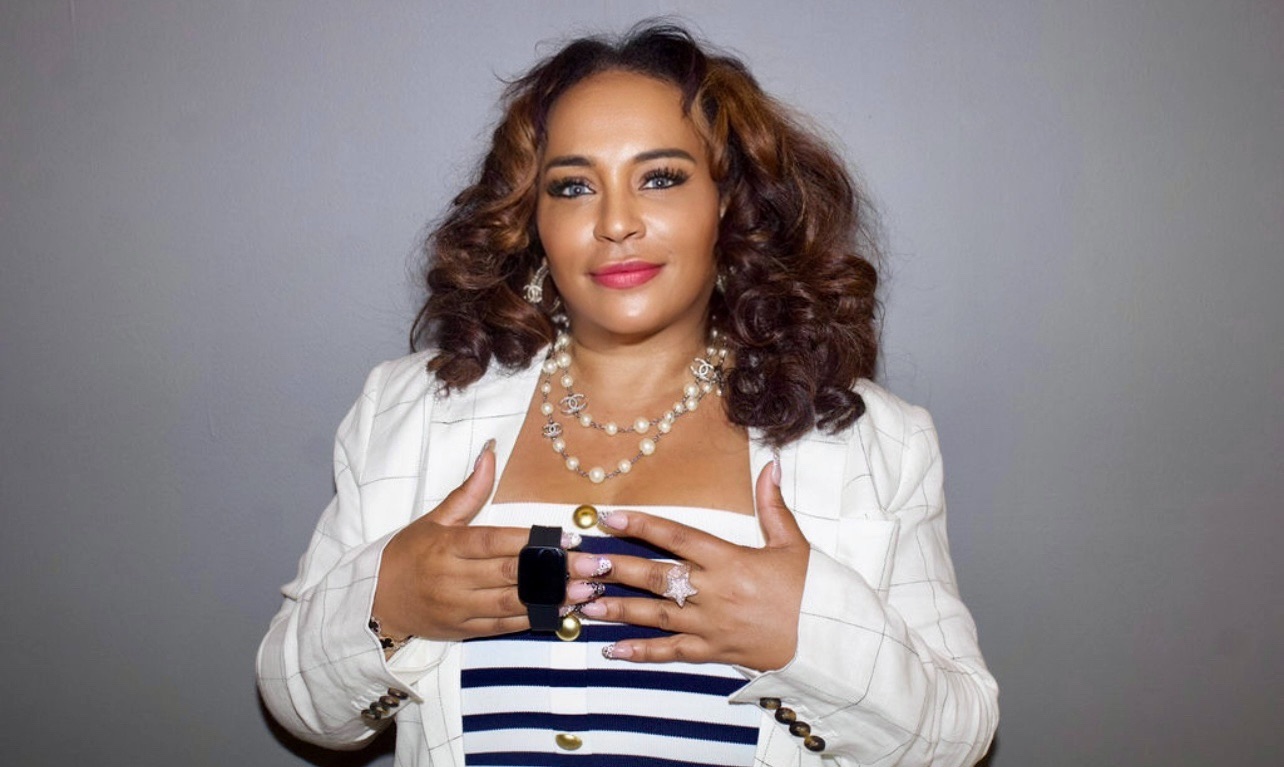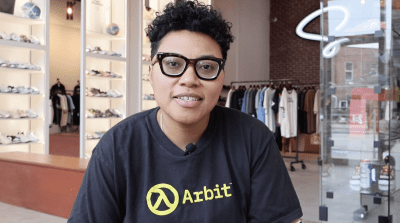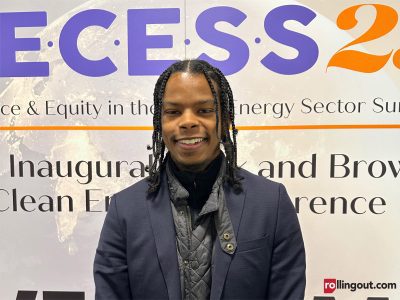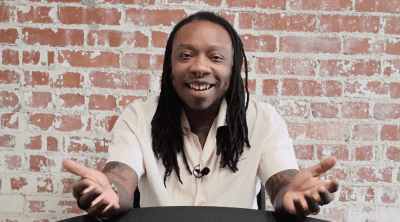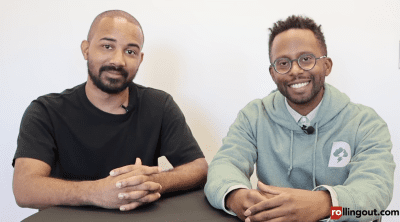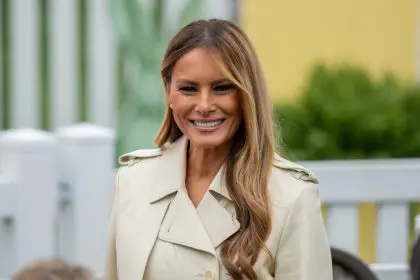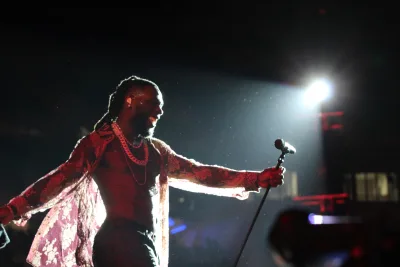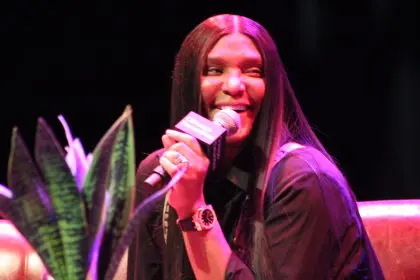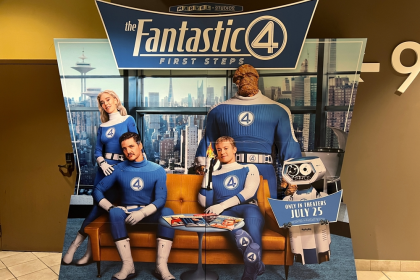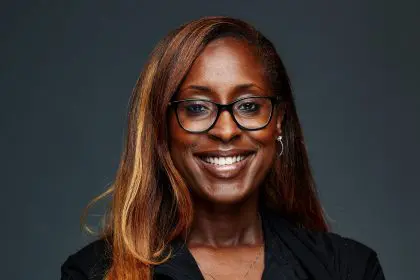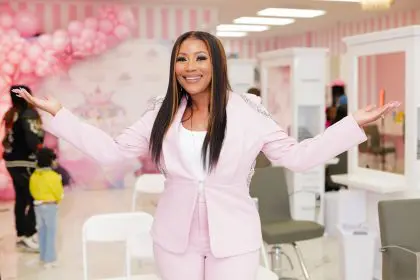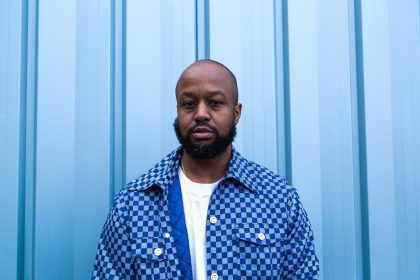Video interview with Tyneadrian Fleming coming soon. Check back shortly to watch this exclusive conversation.
From New York City corrections officer to tech entrepreneur, Tyneadrian Fleming has transformed her 20 years of healthcare experience into groundbreaking wearable technology. The 53-year-old founder of Black Bird Smart Innovations created the first patent-pending QR code embedded in a smart device, designed to protect vulnerable populations through Medicaid-covered safety technology. Her mission: saving lives one wrist at a time.
What moment sparked your journey into health tech innovation?
Black Bird Smart Innovations came to me in a vision. I’ve been working in home care space for almost 20 years as a business owner. I noticed that a lot of my individuals that receive home care really would benefit from additional support not given from a human contact. They need additional safety management support to be able to navigate the community effectively.
I realized that there’s deficits in those areas because it’s not meeting the current technology needs. So I decided to develop it myself and use my own vision and my own intellectual property and years of experience with my therapeutic background, my business background, and I came up with our first smart, wearable technology, which is the Black Bird smart wristband.
How has the Black Bird smart wristband evolved from its first version?
It’s been a journey, but it’s been a beautiful journey. We started out trying to understand smart wearables. But how do I now transform that into safety management? And, more importantly in my space, how do I get it approved in the healthcare system, through insurance companies like Medicaid and Medicare? Around COVID, everything was done with QR codes, but I realized our smartphones and smart watches don’t have a QR code.
I decided to have the first ever QR code that’s embedded inside of the smart, wearable technology which is a watch, that has now been patented, and we just got the word that will be patent approved in July. It’s the language that we wrote inside of the QR code that made it a medical necessity that now pairs with the mobile application to provide all the safety management. So now we have health and wellness, we monitor blood pressure, we monitor steps and fitness and heart rate. However, what made us so valuable now is that we now have the medical ID safety management part that’s located inside the mobile application.
Did you ever imagine you’d transition from corrections and healthcare into technology?
No, no, no, no. This came about in a very critical time in my life. I was going through a divorce. I was changing careers with my business, but it came to me in a vision, and I just couldn’t shake it. I didn’t know where I was going to get this information. I didn’t know I was going to find engineers. I just felt at this point, this is a mission. This is what I was born to do.
Now we are three devices additionally in. We have the first Bluetooth one that pairs with your phone, and then we have another one, which is an LTE that actually operates as a phone. We noticed that people are still connected to the button that hangs from their neck, similar to a pendant. So now we took that concept, and we now changed that into a band.
We have individuals that have difficulty with verbal communication, so when there’s a crisis, all they have to do is train them and this will call anyone that they stored in their protective community. We have a medical ID sleeve with our customized QR code for individuals who have their own smartwatch. Then we have the first ever button with a chip in it, so we can sew the button inside of their clothes as a regular button.
That button now pairs with our mobile application. So now we have four products coming on the market officially in September. We’re looking to be a change agent in the smart, wearable space, and save lives everywhere.
As a Black woman entering the tech space, what kind of reactions did you receive?
It’s extremely difficult. When I made a decision to take this journey, I had to ask for confidence. But I feel that I’m purpose driven, I feel every one of my bands will save lives. I started from a different angle, a different strategy. I wanted to make sure that I made it a medical necessity, so I immediately got it approved by Medicaid. Not only can I save lives, but I don’t have to create a financial expense to do that, now each band will be covered by the insurance companies.
So that’s a win-win for people with Medicaid considered to be low income. We have seniors that are on a fixed income, I don’t want to harm them. Because I know most of the people I’m going to serve look like me in areas of need. When I first presented this to Medicaid and all the government agencies, I thought it was going to be challenging. It really wasn’t challenging.
Everybody I speak to I connect to the emotions, emotions of a family member that they have with dementia, a child with autism that goes missing. They understand that there are extreme deficits out here, and I am now meeting those needs. Not only will we be able to locate them, now we’ll be able to identify them so that way when the doctors come, they know exactly who this person is, and how to properly treat them.
At first I was concerned about that, because this is not a space normally held by black women, but with the grace of God and my mission to complete this, I’m not really having any problems.
What has been the hardest lesson for you to learn as a founder?
Patience! Patience with my engineers! Patience with the manufacturers! Patience with the agencies that I come in contact with. I’m constantly meeting with agencies that have extremely large budgets. I’m always concerned that I’m overexposing myself, because we’re not 100 percent in the market. Will they take the next idea from me?
But because I’m so confident in what I’m doing, I am Black Bird, even though Black Bird’s a device, it’s in me because it was given to me. So I’m no longer afraid of that, I’m ready for every challenge possible, because I know every challenge will come with a growth, a need for me to be smarter in a particular area.
What’s your ultimate vision for the future of care and innovation in health tech?
I want to continue in the wearable space. Right now, we added remote patient monitoring. In the home care space the home care aides don’t take blood pressure. So now we added that mechanism inside of the watch so they can now read the blood pressure data inside of the app. If you’re part of the community, like you’re a doctor, I can upload the information to you.
Now you’re getting real time data all the time. Now you would know exactly where your data is going, because you’ll be able to see it in the app, and then you can send it off properly. Let’s say you have a child that goes off to college that operates on a spectrum. You want him or her to be independent.
This our Black Bird smart wristband will assist with that, because now you’re able to store all of the critical care information, and if they go outside a certain area, you program it into their location. If they decide to wander off, you will get an alert, and everybody in that community will get an alert. So the sky’s the limit, wherever my mind goes.
How can people preorder or get more information about Black Bird products?
You can actually look at the app right now and see all the features. We are in the Google Play Store and the Apple Store on the Blackbird Smart Wristband, or you can go on my website, which is blackbirdtech.app, or you can on Instagram. It’s black_bird_smart_tech.
